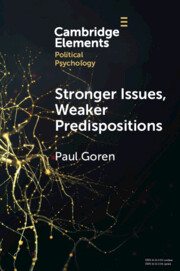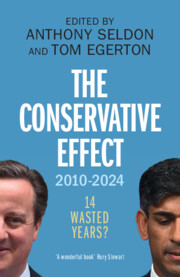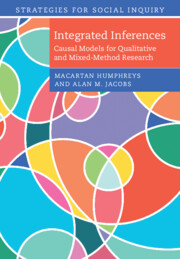Refine search
Actions for selected content:
92 results
Chapter 14 - Political Theory
- from Part III - Political Science
-
- Book:
- The Ladder of the Sciences in Late Antique Platonism
- Published online:
- 08 December 2025
- Print publication:
- 08 January 2026, pp 195-209
-
- Chapter
- Export citation
Case 18
-
- Book:
- Debating Papal History, c. 250–c. 1300
- Published online:
- 03 November 2025
- Print publication:
- 20 November 2025, pp 165-174
-
- Chapter
- Export citation
Women in Political Science: A History of the Canadian Political Science Association’s Women’s Caucus
-
- Journal:
- Canadian Journal of Political Science/Revue canadienne de science politique , First View
- Published online by Cambridge University Press:
- 18 November 2025, pp. 1-22
-
- Article
-
- You have access
- Open access
- HTML
- Export citation

Understanding International Security
- Theory and Practice
-
- Published online:
- 11 October 2025
- Print publication:
- 30 October 2025
-
- Textbook
- Export citation
Voice Through Text, Tradition and Community
-
- Journal:
- Canadian Journal of Political Science/Revue canadienne de science politique / Volume 57 / Issue 4 / December 2024
- Published online by Cambridge University Press:
- 01 April 2025, pp. 721-762
-
- Article
-
- You have access
- Open access
- HTML
- Export citation
What Does Politics & Gender Publish? Trends, Methods, and Topics in Gender and Politics Research
-
- Journal:
- Politics & Gender / Volume 21 / Issue 1 / March 2025
- Published online by Cambridge University Press:
- 11 February 2025, pp. 6-22
-
- Article
-
- You have access
- Open access
- HTML
- Export citation
The Unbearable Opportunity Costs of the Political Science PhD: Evidence and Lessons from Canada
-
- Journal:
- Canadian Journal of Political Science/Revue canadienne de science politique / Volume 57 / Issue 4 / December 2024
- Published online by Cambridge University Press:
- 30 January 2025, pp. 939-954
-
- Article
-
- You have access
- Open access
- HTML
- Export citation
From Inclusion to Transformation: Politics & Gender as a Critical Actor for Intersectional Political Science
-
- Journal:
- Politics & Gender / Volume 21 / Issue 1 / March 2025
- Published online by Cambridge University Press:
- 13 January 2025, pp. 23-50
-
- Article
-
- You have access
- Open access
- HTML
- Export citation
By Way of Introduction
-
- Book:
- Contesting Pluralism(s)
- Published online:
- 19 December 2024
- Print publication:
- 02 January 2025, pp 1-2
-
- Chapter
- Export citation
Conclusion
-
- Book:
- Contesting Pluralism(s)
- Published online:
- 19 December 2024
- Print publication:
- 02 January 2025, pp 300-322
-
- Chapter
- Export citation

Stronger Issues, Weaker Predispositions
- Abortion, Gay Rights, and Authoritarianism
-
- Published online:
- 09 December 2024
- Print publication:
- 16 January 2025
-
- Element
- Export citation
Linguistic Cleavages in Canadian Political Science: Evidence from the Discipline's Annual Conference
-
- Journal:
- Canadian Journal of Political Science/Revue canadienne de science politique / Volume 57 / Issue 2 / June 2024
- Published online by Cambridge University Press:
- 22 September 2024, pp. 452-465
-
- Article
-
- You have access
- Open access
- HTML
- Export citation

The Conservative Effect, 2010–2024
- 14 Wasted Years?
-
- Published online:
- 24 July 2024
- Print publication:
- 27 June 2024
1 - The Three-Hatted Pollster
-
- Book:
- Polls, Pollsters, and Public Opinion
- Published online:
- 01 November 2024
- Print publication:
- 04 July 2024, pp 1-12
-
- Chapter
-
- You have access
- HTML
- Export citation
Introduction: What Difference Do Governments Make?
-
-
- Book:
- The Conservative Effect, 2010–2024
- Published online:
- 24 July 2024
- Print publication:
- 27 June 2024, pp 1-3
-
- Chapter
- Export citation
4 - The Paradigmatic Example of Weimar and Postwar Political Science
-
-
- Book:
- Weimar's Long Shadow
- Published online:
- 26 September 2024
- Print publication:
- 27 June 2024, pp 84-118
-
- Chapter
- Export citation
Chapter 3 - What Is Contextualized Contestation?
-
- Book:
- A Social Psychology of Protest
- Published online:
- 23 November 2023
- Print publication:
- 07 December 2023, pp 46-60
-
- Chapter
- Export citation
11 - Embedded Ideas: Revolutionary Theory and Political Science in the Eighteenth Century
- from Part II - Case Studies in the Digital History of Ideas
-
-
- Book:
- Explorations in the Digital History of Ideas
- Published online:
- 09 November 2023
- Print publication:
- 23 November 2023, pp 225-255
-
- Chapter
- Export citation

Integrated Inferences
- Causal Models for Qualitative and Mixed-Method Research
-
- Published online:
- 13 October 2023
- Print publication:
- 30 November 2023
8 - Choosing
-
- Book:
- Post-Truth American Politics
- Published online:
- 28 September 2023
- Print publication:
- 12 October 2023, pp 119-142
-
- Chapter
- Export citation
